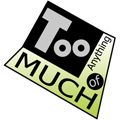While freedom is generally considered a fundamental value in democratic societies, it is important to recognize that excessive or unchecked freedom can indeed pose dangers.
Potential dangers associated with having too much freedom:
 Excessive freedom can lead to fragmented societies where individuals prioritize their own interests over collective well-being. Without a sense of shared values and responsibilities, social cohesion may deteriorate, leading to societal divisions and conflicts.
Excessive freedom can lead to fragmented societies where individuals prioritize their own interests over collective well-being. Without a sense of shared values and responsibilities, social cohesion may deteriorate, leading to societal divisions and conflicts.
Exploitation and inequality
Unfettered freedom can result in the concentration of power and resources in the hands of a few individuals or groups. This can lead to exploitation and inequality, as those with more resources can exploit those with fewer resources, exacerbating social and economic disparities.
Threat to public safety
When freedom is not balanced with appropriate regulations and oversight, it can potentially endanger public safety. For instance, unregulated markets may lead to the production and distribution of unsafe or harmful products. Similarly, unrestricted personal freedoms may give rise to behaviors that pose risks to public health or security.
Misuse of power
Absolute freedom without accountability can empower individuals or groups to abuse their power. This can lead to corruption, authoritarianism, or the violation of human rights. Effective checks and balances are necessary to prevent such abuses and safeguard individual rights.
Lack of direction and responsibility
 Too much freedom without guidance or responsibilities can result in individuals feeling adrift or lacking purpose. A sense of direction and responsibility helps foster personal growth, contribute to society, and maintain a stable social order.
Too much freedom without guidance or responsibilities can result in individuals feeling adrift or lacking purpose. A sense of direction and responsibility helps foster personal growth, contribute to society, and maintain a stable social order.
Inability to address collective challenges
Excessive individual freedom can hinder the ability to collectively address societal challenges that require coordinated efforts. Issues like climate change, public health crises, or economic disparities often necessitate collective action and cooperation, which can be impeded if everyone prioritizes their individual freedom without considering the common good.
It is important to strike a balance between individual freedom and collective well-being
Societies need a legal and ethical framework that ensures personal liberties while also protecting against the dangers associated with excessive freedom. Finding this balance requires ongoing discussions, debate, and a commitment to democratic principles and human rights.
How to deal with a situation when you have too much freedom
If you find yourself with an excess of freedom and are unsure how to navigate it, here are some suggestions on how to make the most of your situation responsibly.
 Reflect on your values and goals. Take the time to understand your personal values and long-term goals. Reflecting on what truly matters to you can help you prioritize your actions and make choices that align with your principles.
Reflect on your values and goals. Take the time to understand your personal values and long-term goals. Reflecting on what truly matters to you can help you prioritize your actions and make choices that align with your principles.
Set personal boundaries. Define personal boundaries that respect both your own rights and the rights of others. This can involve establishing limits on your behavior and actions to ensure that your freedom does not infringe upon the well-being or rights of others.
Seek self-improvement and growth. Use your freedom as an opportunity for self-improvement and personal growth. Explore your interests, acquire new skills, and pursue lifelong learning. Embrace the chance to expand your knowledge and abilities, which can help you contribute positively to society.
Engage in meaningful relationships. Cultivate healthy and meaningful relationships with others. Connection and empathy can provide a sense of purpose and fulfillment. Engaging with diverse perspectives and experiences can also broaden your understanding of the world and help you navigate your freedom responsibly.
Give back to your community. Use your freedom to make a positive impact in your community. Volunteer, support local initiatives, or engage in philanthropic endeavors. Contributing your time, resources, or expertise can help address societal challenges and create a more equitable and just society.
Stay informed and engaged. Stay informed about current events, social issues, and policy matters. Being aware of the world around you enables you to make informed decisions and actively participate in shaping your society. Engage in civil discourse, join advocacy groups, or participate in community organizations to have a positive influence on the issues you care about.
 Embrace responsible decision-making. Recognize that freedom comes with responsibility. Consider the potential consequences of your actions and make decisions that align with ethical and moral principles. Act in a way that respects the rights and well-being of others, fostering a harmonious and inclusive environment.
Embrace responsible decision-making. Recognize that freedom comes with responsibility. Consider the potential consequences of your actions and make decisions that align with ethical and moral principles. Act in a way that respects the rights and well-being of others, fostering a harmonious and inclusive environment.
While having freedom can be empowering, it is essential to exercise it responsibly, respecting the rights and dignity of others. By finding a balance between personal liberty and social responsibility, you can make the most of your freedom in a way that contributes to the greater good.
